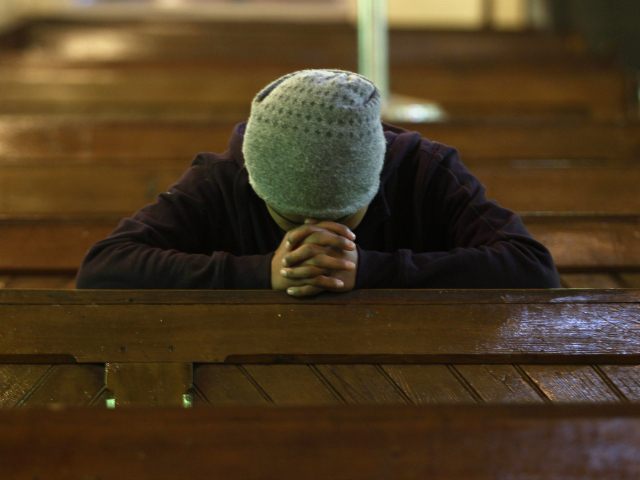New Hampshire is now the least religious state in the United States, edging out Vermont, according to a new Gallup survey, while Mississippi retains its spot as the nation’s most religious state.
For the first time, New Hampshire has come in two points lower than Vermont in its percentage of “very religious Americans” — at 20 percent — with Vermont coming in at 22 percent. Gallup observes that, throughout the past eight years, the two states have been very close in taking the spot of least religious state in the country, with Vermont edging out New Hampshire until this year.
According to the survey, only 20 percent of Americans in New Hampshire are “very religious,” while 24 percent are “moderately religious,” and 55 percent are “nonreligious.” In Vermont, 22 percent are “very religious,” while 23 percent are “moderately religious,” and 56 percent are “nonreligious.”
Other least religious states are Maine, Massachusetts, Oregon, Washington, Hawaii, Rhode Island, and New York.
The Granite State’s new bottom ranking in religiosity could be significant since faith has proven to be an important factor in the presidential race this year. New Hampshire holds the first primary elections in the nation as part of the process of ultimately choosing the Republican and Democrat presidential nominees.
Gallup writes about the potential significance, as New Hampshire takes the spotlight this week in the days leading up to the primary February 9:
New Hampshire is in the national spotlight this week as the presidential candidates focus on next Tuesday’s primary in the Granite State. According to entrance polls of Iowa caucus voters, Ted Cruz’s win in the GOP caucus on Feb. 1 in Iowa was driven by his strong appeal to highly religious or evangelical Republicans — who turned out in large numbers. Although Iowa as a state has only average religiosity, it is still significantly more religious than New Hampshire, suggesting that Cruz will have fewer evangelicals to bring out to vote in that state’s primary.
In Iowa, 39 percent of those surveyed were found to be “very religious,” while 29 percent came in as “moderately religious,” and 32 percent as “nonreligious.”
Following New Hampshire, the GOP primary candidates’ next battleground is South Carolina — the nation’s seventh most religious state. In the Palmetto State, 51 percent of those surveyed are “very religious,” while 31 percent are “moderately religious,” and 18 percent are “nonreligious.”
The most religious states in the U.S. are found in the South. Mississippi continues as the most religious state, with 63 percent surveyed considered to be “very religious,” 26 percent “moderately religious,” and 11 percent “nonreligious.” The Magnolia State is followed by Alabama, with 57 percent “very religious,” 29 percent “moderately religious,” and 14 percent “nonreligious.”
Utah — which comes in third in the nation in religiosity, with 55 percent “very religious Americans” — is the only non-Southern state among the most religious states. The majority of Utah’s population identifies as Mormon.
Louisiana, Tennessee, and Arkansas come in as higher in religiosity than South Carolina, while Georgia, North Carolina, Kentucky, Texas, and Oklahoma are less religious than South Carolina, according to Gallup.
Religion is likely to be an important factor in the “SEC Primary” — which includes Alabama, Arkansas, Georgia, North Carolina, Tennessee, Texas, and Virginia, and will be held on March 1. Louisiana will hold its primary on March 5 and Mississippi on March 8.
“Religion today is significantly linked to politics in the U.S., with Republicans, on average, significantly more religious than Democrats, so it could be expected that more religious states would be more Republican,” suggests Gallup. “This tends to be true in general, with many of the most religious states classified as solid or lean Republican in Gallup’s recent analysis of 2015 party identification data.”
The survey results are based on over 174,000 interviews. According to Gallup:
Very religious Americans are those who say religion is important to them and who attend services every week or almost every week. Nonreligious Americans are those for whom religion is not important and who seldom or never attend religious services. Moderately religious Americans meet just one of the criteria, either saying religion is important or that they attend services almost every week or more.
The rankings of all the states on religiosity can be found in the Gallup survey.

COMMENTS
Please let us know if you're having issues with commenting.